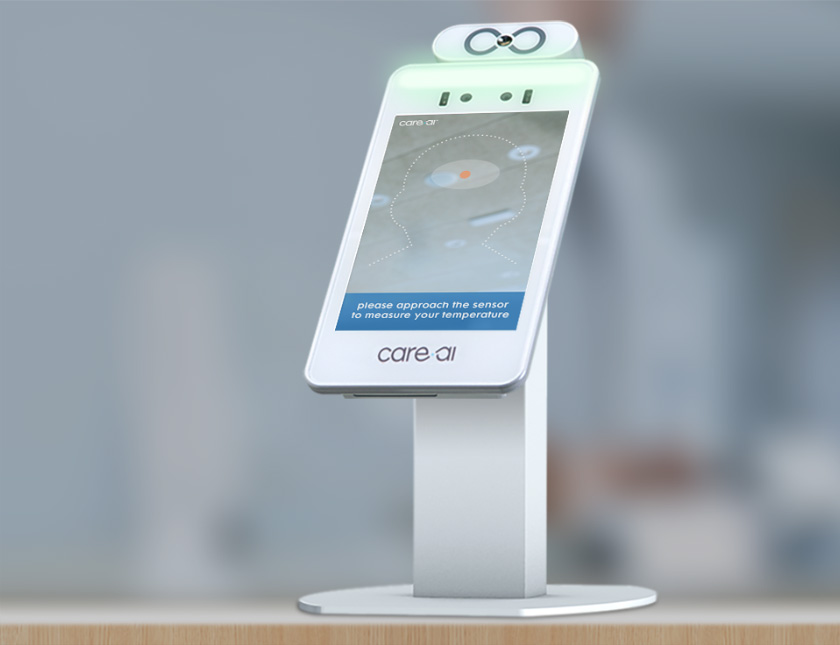Ambient monitoring patient platform care.ai raises $27M
The company uses AI-enabled sensors to get real-time insights into how patients are doing
 Care teams are constantly burdened with manual tasks, which takes an immense toll on them both physically and mentally. For example, the majority of care facilities today rely on cameras or clinicians to manually monitor patients, even though it’s impossible for care teams to monitor all of their patients at once, especially when they are bogged down with routine tasks and data collection.
Care teams are constantly burdened with manual tasks, which takes an immense toll on them both physically and mentally. For example, the majority of care facilities today rely on cameras or clinicians to manually monitor patients, even though it’s impossible for care teams to monitor all of their patients at once, especially when they are bogged down with routine tasks and data collection.
While ambient intelligence has proved successful in numerous other industries, such as manufacturing, retail and engineering, the healthcare industry still lags behind when it comes to technology adoption, said Chakri Toleti, founder and CEO of care.ai, an AI-powered ambient monitoring platform for healthcare facilities. Earlier this week the company announced a $27 million funding round from Crescent Cove Advisors.
"Other companies in the industry have introduced fragmented solutions that focus on individual point solutions, such as fall prevention or patient flow. I started care.ai to solve these challenges and more in a single platform that healthcare settings can rely on to keep patients and care teams safe and effective," he said.
The company's Smart Care Facility Platform transforms healthcare settings into responsive care facilities that continuously monitor patient activity and the surrounding clinical and operational workflows.
Using AI-enabled edge sensors, the platform surfaces real-time inferences and insights to alert and report on activities that help healthcare organizations improve patient outcomes. Depending on their care setting and needs, healthcare organizations can use the platform to improve operations such as infection prevention and control, patient and protocol monitoring, workforce optimization, virtual nursing, and virtual care.
While care.ai's technology doesn’t monitor patient vitals directly, it does have the ability to integrate with vitals monitoring solutions to help better support care teams. It also automates manual tasks, empowering care teams to spend more time with patients and improve overall quality of care. Additionally, it automatically monitors patient rooms for potential risks to provide an added level of patient safety support.
"Leveraging AI-enabled sensors, our platform surfaces real-time inferences and insights to report on activities that help healthcare organizations optimize their clinical workforce, while improving quality, safety, and compliance," Toleti explained.
"For instance, our platform can detect the earliest indicators of patient bed exits to prevent falls, monitor a patient’s position in bed to alert care teams when rotation is needed, and monitor activity throughout a facility to notify staff if a patient moves toward an exit."
The technology is currently deployed in over 1,500 facilities across the country, including hospitals, skilled nursing facilities, and assisted living facilities; while noting that the benefits vary depending on the unique challenges its customers seek to address, Toleti also said that, across the board, its services reduce costs, smooth processes and, most importantly, ease burdens on care teams so they can focus on providing the best possible patient care.
The company is helping the healthcare industry solve two existential problems it is currently facing: first is that it’s nearly impossible for caregivers to do everything that they are asked and, second, that fiscal models for optimal care are untenable.
"The pandemic didn’t create these problems but rather amplified them, creating a new sense of urgency in providers to enact change. Running parallel to this need is the value we’ve already seen ambient technology bring to other industries. It’s due time that we use it to improve how care is delivered," said Toleti.
"Clinicians spend more than half their workday on routine tasks such as completing electronic medical record documentation rather than focusing on the human care that only they can provide. Manual processes like these take time away from patient care and ultimately contribute to medical errors that could harm patients."
That's why his goal for care.ai is to introduce ambient intelligence to the healthcare industry in order to eliminate burdens that have historically fallen on care teams and provide a level of care the industry that he believes has never seen before.
"Healthcare is one of the most challenging systems to navigate, and I want to mitigate the worry people feel when a loved one needs clinical care. No one can remove the concern you feel when someone you love is getting older or needs care, but we can eliminate anxiety about whether a patient is receiving the care they need and deserve."
(Image source: care.ai)
